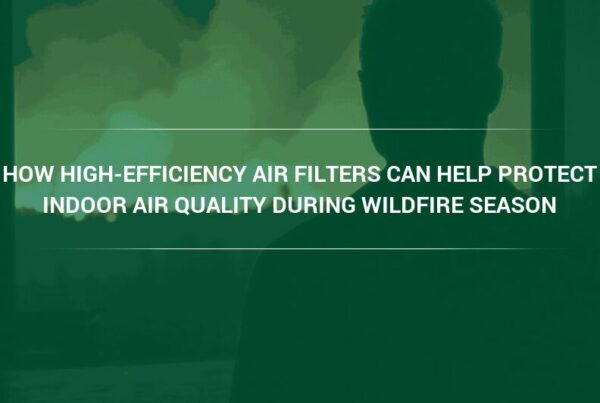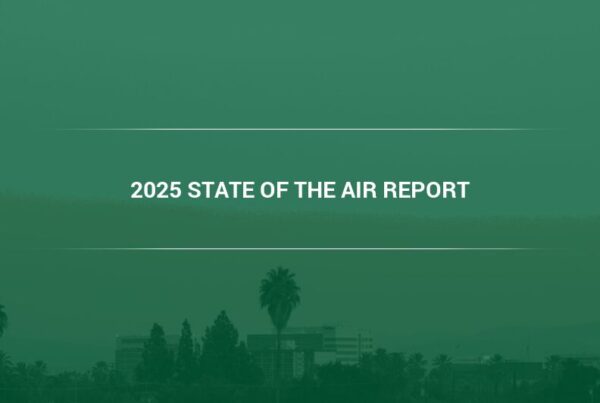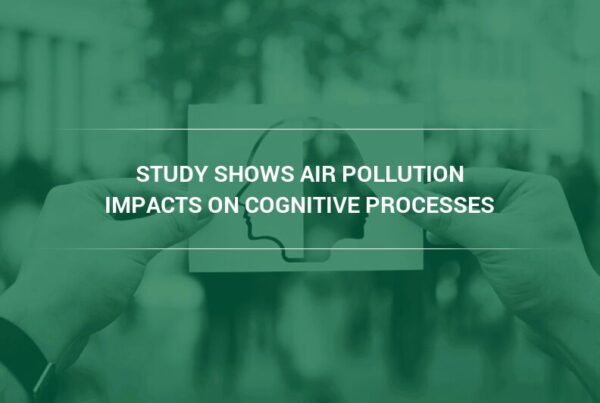In densely packed urban areas, sometimes facilities like schools and daycares are built without much thought given to their location. This results in a situation where air pollution near daycares can be intense, harming the children who attend them. What are the primary sources of the air pollution near daycares? How can the polluted air be cleaned up to ensure the safety of daycare children?
Daycares Located Near Highways
In many cities around the country, space is at a premium, which means that frequently daycares and schools can end up being constructed near major thoroughfares like freeways and highways. It is thought that one in every eleven public schools in the United States is located within 500 feet of a major freeway or highway, and potentially, even more, daycares located near highways.
Schools and daycares located near highways are exposed to higher levels of air pollution than facilities built away from highways, hence the creation of the 500-foot target to help ensure the safety of children.
“In California alone, there are over 150 schools located within 500 feet of high traffic roadways,” says Kevin Wood, Camfil USA Vice President Sales & Marketing. “In response to this problem, the California state government passed a law in 2003 that prohibited the construction of new schools within 500 feet of a major road. Yet many schools already exist within this zone, and the law also does not apply to daycares, 169 of which in the Los Angeles County are located within that 500 regions.” (1)
Preschools located in public elementary schools are included in the law, but unfortunately, they are only a small percentage of the total of daycares or early education centers. Many daycares are non-profits and operated out of homes, which would make enforcing the law difficult.
Daycares and schools all over the country are built near major roadways, with some states not having the kinds of laws that California has to protect children. Part of the reason the problem is so widespread is that school districts purchase cheap land by highways to build schools for a low expense and that the dangers of pollution from roadways are often not well understood by parents.Air Pollution Near Daycares Impacts Children’s Health
Air pollution near daycares impacts children’s health in a variety of damaging ways. Pollutants such as ground-level ozone, particle pollution, and air toxins like nitrogen dioxide and sulfur dioxide can harm the health of children.
Particle pollution, which is also referred to a particular matter or PM, refers to liquid and solid particles that come from sources like combustion. The nitrogen oxides and sulfur dioxide released by cars can cause problems like lung and heart disease, the aggravation of asthma, impaired overall lung function, and irregular heartbeat.
“The EPA warns that those who live or attend daycares or schools near major roadways often face higher incidences of cardiovascular disease, higher rates of asthma, and premature death,” says NAME, POSITION at Camil. “These problems are magnified in children, whose bodies are still developing. Air pollution can impair lung development in children, and lead to childhood leukemia.” (2)
Researchers at the University of Southern California found that there were clear signs of reduced lung function in children between the ages of 10 and 18 who attended school within 500 feet of major roadways.
Low-income neighborhoods are disproportionately impacted by air pollution and air toxins from vehicles. Poor minority children are three times more likely to live in areas of high vehicle traffic than more affluent white children.
Protecting Children From Air Pollution Near Daycares
Protecting children from air pollution near daycares is a complicated task, with no easy solutions, but it’s extremely important to do it. There are various emission control strategies that can be used to cut down on air pollution near daycares and schools. Some of the strategies include regulation, environmental landscaping, changing commuting habits, and using efficient air filters to remove the contaminants before they enter the building.
In the future, regulations will have to be created that limit the construction of daycares and schools near areas of heavy traffic. Laws like California’s law that prohibit the building of schools in 500 feet of major roadways will have to be initiated, although regulation by itself is not enough and should not be solely relied upon.
Research has implied that the planting of trees, shrubbery, and other foliage help to reduce fine particle pollution from constant traffic. Children should be kept inside when air quality forecasts say that air pollution is particularly harmful that day.
“Changing commuting habits and carpooling, upgrading bus fleets to buses that use cleaner technology, and reducing vehicle idling can all cut down on air pollution as well,” says Camfil’s POSITION, NAME. “Using air filters is one of the best ways to ensure indoor air quality, although filters do not help when children are outside. Upgrading filtration systems should be a point of focus for school districts and by home-run daycares.” (3)
While air pollution near daycares is a difficult problem to deal with, it is imperative to the health of children that the problem is dealt with. The various means of reducing air pollution can and should be employed alongside one another to protect children’s health.
Camfil can provide you with more information about the dangers of air pollution near daycares and the best methods to protect your child. Camfil can also provide you with high-efficiency filters that remove 99.9% of particles from the air. They can also provide some guidance, contact Camfil for a copy of their Air Filtration for Schools Brochure today.
Lynne Laake
Camfil USA Air Filters
T: 888.599.6620,
E:Lynne.Laake@camfil.com
F: Friend Camfil USA on Facebook
T: Follow Camfil USA on Twitter
Y: Watch Camfil Videos on YouTube
SOURCES
http://www.scpr.org/news/2016/03/29/58878/pollution-near-preschools-is-impacting-nearly-10-0/
https://www.epa.gov/mobile-source-pollution/how-mobile-source-pollution-affects-your-health
https://www.epa.gov/schools/best-practices-reducing-near-road-air-pollution-exposure-schools



